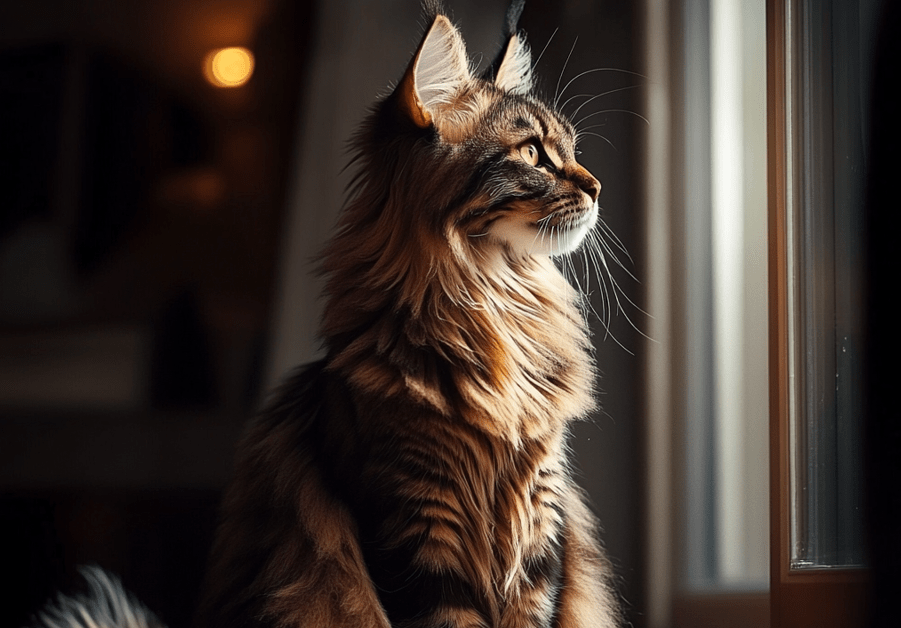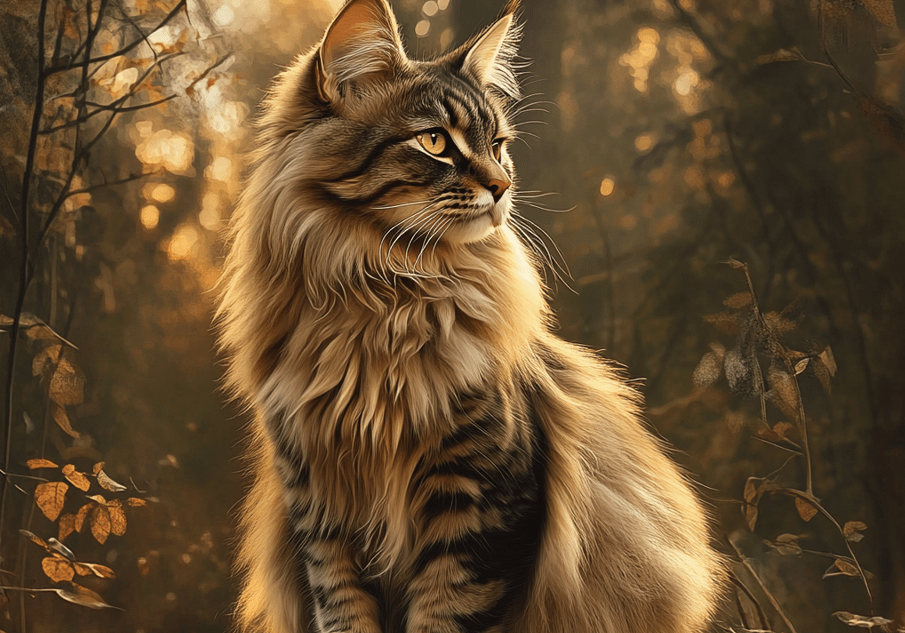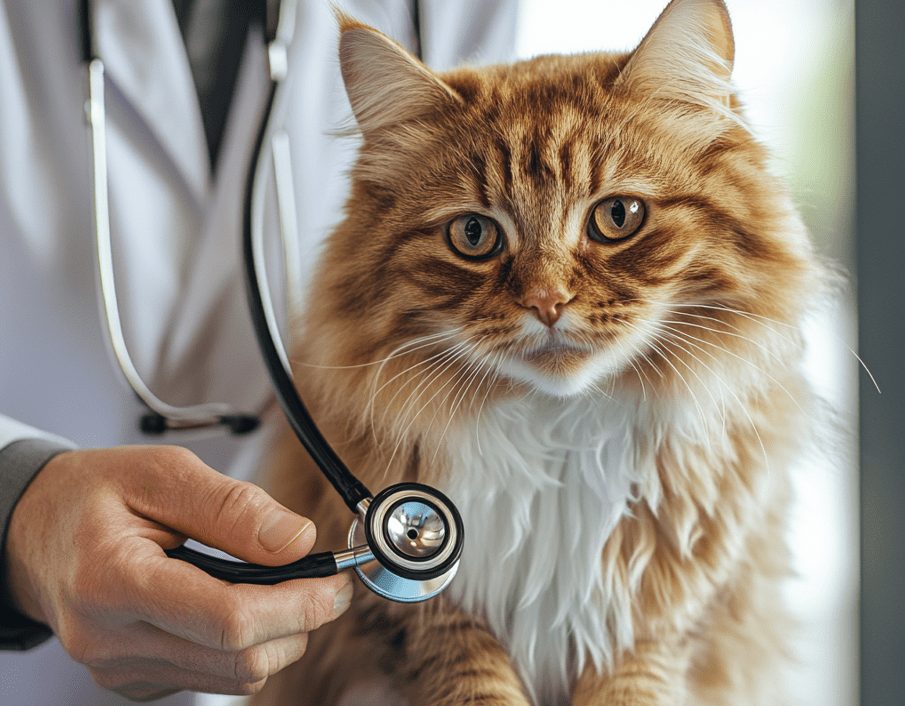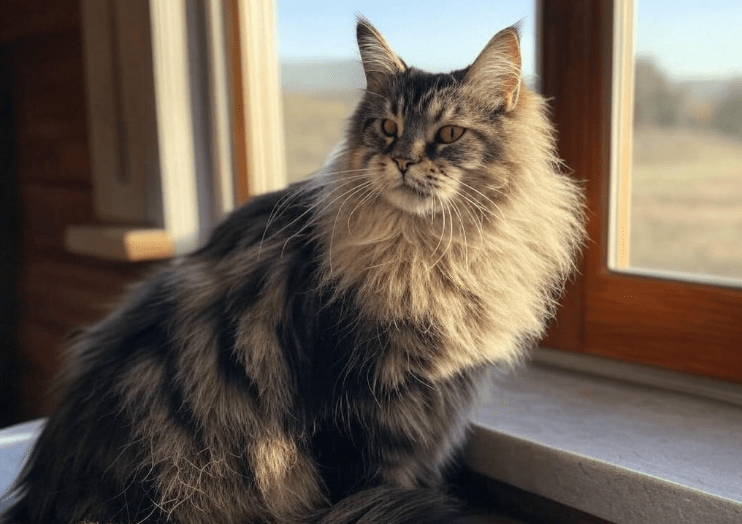
Maine Coon eye care is essential for maintaining the health and vibrant appearance of these majestic cats. Known for their large, expressive eyes, Maine Coons are prone to specific eye issues like infections and tear stains, which can affect their well-being if not addressed. This comprehensive guide explores how to prevent eye infections, manage tear stains, and ensure optimal eye health for your Maine Coon, offering practical tips and insights for cat owners.
Understanding Maine Coon Eye Health
Maine Coons, often called “gentle giants,” have distinctive features, including their large, almond-shaped eyes that convey emotion and intelligence. However, their eye structure and facial anatomy make them susceptible to certain conditions, such as conjunctivitis, tear staining, and debris buildup. Proper Maine Coon eye care involves understanding these vulnerabilities and taking proactive steps to protect their vision and comfort.
Why Maine Coon Eyes Need Special Attention
The Maine Coon’s facial structure, with a slightly flattened muzzle and prominent eyes, can lead to excessive tearing (epiphora), which contributes to tear stains and creates a moist environment conducive to bacterial or fungal infections. Additionally, their long, bushy fur can trap dirt or debris near the eyes, increasing the risk of irritation. Regular eye care is crucial to prevent these issues and maintain your cat’s sparkling gaze.
Common Eye Problems in Maine Coons
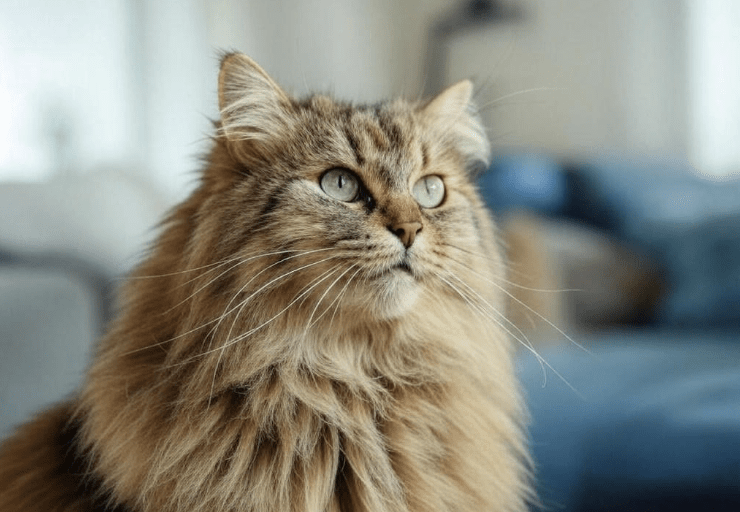
To effectively care for your Maine Coon’s eyes, it’s important to recognize the common issues they may face. Below are the most prevalent eye problems and their symptoms:
1. Tear Stains
Tear stains appear as reddish-brown streaks beneath the eyes, caused by porphyrins in tears that oxidize upon exposure to air. While not always a health concern, persistent tear stains can indicate underlying issues like blocked tear ducts or allergies.
Symptoms:
1.Discoloration under the eyes
2.Damp fur around the eye area
3.Mild odor in severe cases
2. Conjunctivitis
Conjunctivitis, or “pink eye,” is an inflammation of the conjunctiva, often caused by bacteria, viruses, or allergens. Maine Coons are prone to this condition due to their prominent eyes.
Symptoms:
1.Redness or swelling around the eyes
2.Excessive tearing or discharge
3.Squinting or pawing at the eyes
3. Corneal Ulcers
Corneal ulcers are scratches or abrasions on the eye’s surface, often caused by debris, scratches, or infections. If untreated, they can lead to serious complications.
Symptoms:
1.Cloudy or hazy eyes
2.Excessive blinking or sensitivity to light
3.Visible discomfort or pain
4. Entropion
Entropion is a condition where the eyelid rolls inward, causing the eyelashes to rub against the cornea. This can lead to irritation, infections, or ulcers.
Symptoms:
1.Watery eyes
2.Redness or irritation
3.Frequent squinting
Preventive Measures for Maine Coon Eye Care
Preventing eye problems in Maine Coons requires a combination of regular maintenance, environmental management, and prompt attention to symptoms. Below are actionable steps to keep your cat’s eyes healthy.
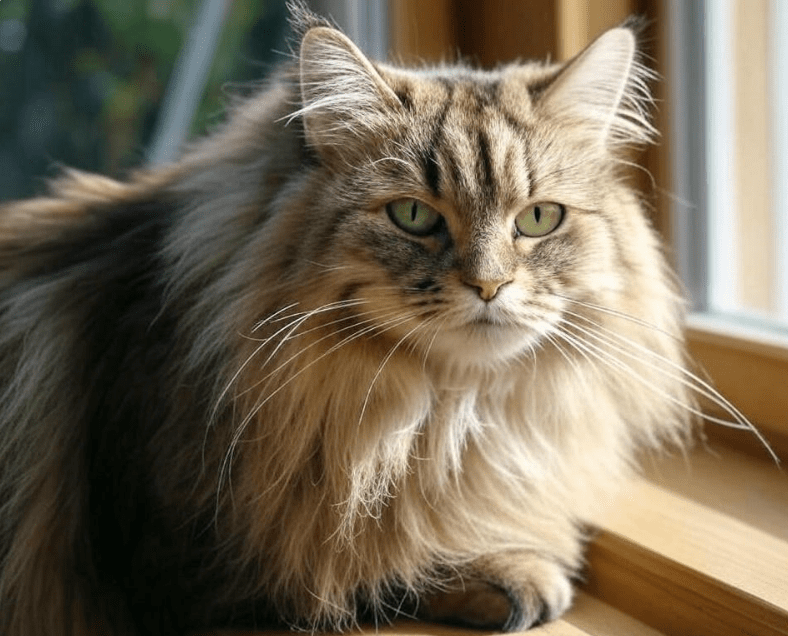
1. Daily Eye Cleaning Routine
A consistent cleaning routine is the cornerstone of Maine Coon eye care. Use a soft, damp cloth or a vet-approved eye wipe to gently remove debris, crust, or tear buildup from the corners of the eyes.
How to Clean Your Maine Coon’s Eyes:
Step 1: Wash your hands thoroughly to avoid introducing bacteria.
Step 2: Soak a clean cloth or cotton pad in lukewarm water or a vet-recommended saline solution.
Step 3: Gently wipe from the inner corner of the eye outward, using a fresh cloth for each eye to prevent cross-contamination.
Step 4: Avoid touching the eyeball directly to prevent discomfort.
Tip: Perform this routine daily or as needed, especially for cats with heavy tearing.
2. Use Safe, Vet-Approved Products
Avoid human eye drops or harsh chemicals. Opt for feline-specific eye solutions recommended by your veterinarian. Products like artificial tears can help flush out irritants, while medicated drops may be prescribed for infections.
3. Monitor for Signs of Infection
Regularly inspect your Maine Coon’s eyes for redness, discharge, or changes in appearance. Early detection of infections like conjunctivitis can prevent complications. If you notice cloudy discharge, persistent squinting, or behavioral changes, consult a veterinarian promptly.
4. Maintain a Clean Environment
Dust, pollen, and other allergens can irritate your Maine Coon’s eyes. Keep their living space clean by:
1.Vacuuming regularly to reduce dust and dander.
2.Using air purifiers to minimize airborne allergens.
3.Washing bedding and toys frequently to prevent bacterial buildup.
5. Grooming to Prevent Irritation
Maine Coons have long fur that can encroach on the eye area, trapping debris or causing irritation. Regular grooming, including trimming fur around the eyes (with caution), can reduce this risk. Use blunt-tipped scissors and seek professional grooming assistance if needed.
6. Address Tear Stains Promptly
To prevent tear stains from becoming a chronic issue, address the root cause and maintain a cleaning routine. Persistent stains may require vet evaluation to rule out blocked tear ducts, allergies, or dental issues, which can contribute to excessive tearing.
Home Remedies for Tear Stains:
Apple Cider Vinegar: Add a small amount (1/4 teaspoon per liter of water) to your cat’s drinking water to alter tear pH and reduce staining. Consult your vet before trying this.
Tear Stain Wipes: Use vet-approved wipes formulated to break down porphyrins and prevent discoloration.
Dietary Adjustments: Ensure your cat’s diet is free from artificial dyes, which can exacerbate staining.
Note: Never use hydrogen peroxide or bleach-based products near your cat’s eyes, as they can cause severe irritation.
Diet and Nutrition for Eye Health
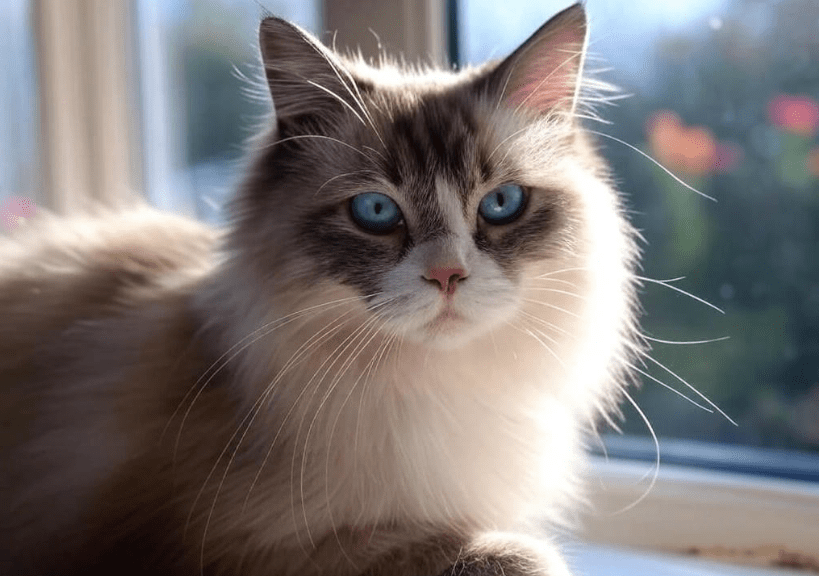
A balanced diet plays a significant role in Maine Coon eye care. Nutrients like omega-3 fatty acids, vitamin A, and antioxidants support overall eye health and reduce inflammation. Consider the following:
High-Quality Cat Food: Choose premium, grain-free cat food with natural ingredients to minimize allergic reactions that could affect the eyes.
Hydration: Ensure your Maine Coon has access to fresh water to prevent dehydration, which can reduce tear production and lead to dry eyes.
Supplements: Consult your vet about supplements like fish oil or taurine, which are essential for feline vision and eye health.
When to Visit a Veterinarian
While preventive care can address many issues, some conditions require professional intervention. Schedule a vet visit if you notice:
1.Persistent or worsening symptoms (e.g., thick discharge, severe redness).
2.Changes in eye color or clarity.
3.Behavioral changes, such as lethargy or reduced appetite, alongside eye issues.
Your veterinarian may perform diagnostic tests, such as a fluorescein stain to detect corneal ulcers or a Schirmer tear test to assess tear production. Treatment may include antibiotic drops, anti-inflammatory medication, or surgery for conditions like entropion.
Maine Coon Eye Care Myths Debunked
Myth 1: Tear Stains Are Just Cosmetic
While tear stains may seem harmless, they can signal underlying issues like infections, allergies, or anatomical problems. Ignoring them can lead to discomfort or chronic conditions.
Myth 2: Human Eye Drops Are Safe for Cats
Human medications, including eye drops, can be toxic to cats. Always use feline-specific products prescribed by a veterinarian.
Myth 3: Maine Coons Don’t Need Regular Eye Care
Even healthy Maine Coons benefit from routine eye cleaning and monitoring to prevent issues before they arise.
Creating a Long-Term Eye Care Plan
To ensure your Maine Coon’s eyes remain healthy throughout their life, develop a comprehensive care plan that includes:
Daily Monitoring: Check for changes in eye appearance or behavior.
Weekly Cleaning: Incorporate eye cleaning into your grooming routine.
Annual Vet Checkups: Schedule regular exams to catch potential issues early.
Lifestyle Adjustments: Maintain a clean environment and a balanced diet to support overall health.
Conclusion
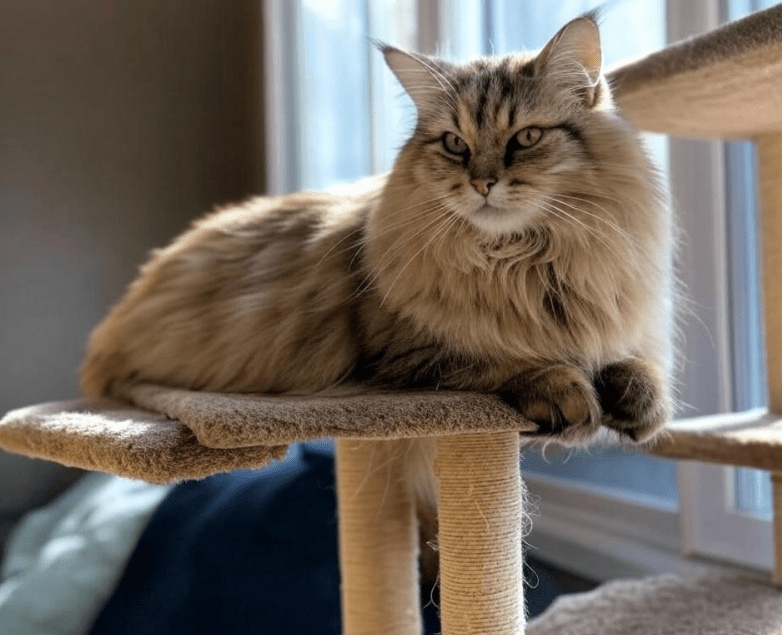
Maine Coon eye care is a vital aspect of keeping these beloved cats healthy and comfortable. By implementing a consistent cleaning routine, monitoring for symptoms, and addressing issues promptly, you can prevent infections, reduce tear stains, and preserve your Maine Coon’s beautiful eyes. With proper care, a clean environment, and a balanced diet, your Maine Coon can enjoy clear vision and vibrant health for years to come. Always consult your veterinarian for personalized advice and treatment options to ensure the best outcomes for your feline friend.

